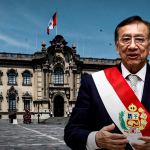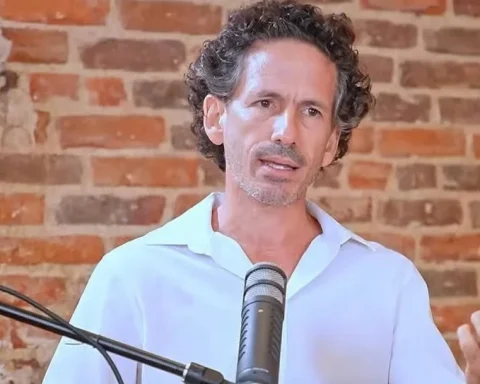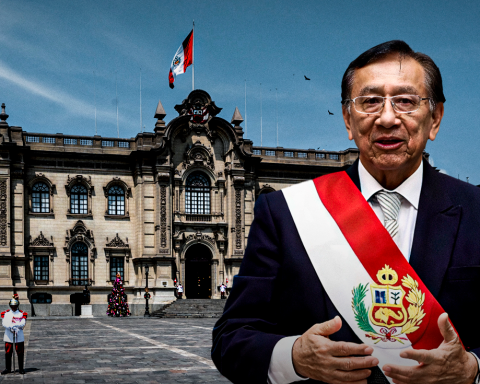A plenary session of the Constitutional Affairs, Justice and Budget commissions of the Chamber of Deputies continued this Tuesday with the debate on the project on the implementation of the Single Paper Ballot with the exhibition of specialists, while next week the legislators will focus on advance in an opinion to comply with the summons made by the lower house on May 5, at the request of the opposition.
After listening to twenty exhibitors, The plenary session will resume next week with the discussion between the legislators to seek to advance in an opinion, although the ruling party anticipated that it will reject the dispatch, considering that it is an issue that “is not on the people’s agenda.”.
The meeting was headed by the presidents of the Constitutional Affairs commissions, chaired by Hernán Pérez Araujo (Frente de Todos); Justice, in charge of Rodolfo Tailhade (Front of All) and Budget, headed by Carlos Heller (Front of All).
Opening the list of speakers, the Secretary for Political Affairs of the Ministry of the Interior, Patricia Garcia Whiteassured that “since ’83 to date the elections take place with total normality and there have been no complaints”, said that the system “has given peaceful alternation to the different forces” and considered that with the proposals to change the system ” the legitimacy of all elected positions is called into question”.
García Blanco highlighted that with the current party ballot system “the political forces have won by being the opposition and lost by being the government,” warning that the implementation of the single ballot “does not guarantee cost reduction and does not end with the lists of sheets.” . Also, considered it “reckless” to move forward with the implementation of the single ballot and considered that a change in the current electoral system requires “a deep, full and comprehensive debate” and “cannot be done in a hurry and even less to impose an agenda.”

Although it was an informative meeting, several legislators refuted the official, including the PRO deputy, Silvia lospennatewhich questioned García Blanco’s assertion, stating that “there are many complaints in all the elections in relation to different instances of the electoral process”, to which García Blanco reiterated that “none of the judicializations that were carried out have modified the result electoral”.
Also, the head of the UCR, Mario Blackwent out to the intersection and stated that “the debate must lower the temperature and reason, to see if we are inventing something crazy or not. The single ballot has existed since ’58 in Australia and only 16 countries in the world do not have it “.
Against the modification of the current system, the representative of PJ of the province of Buenos Aires, Edward Lopezwho maintained: “I have never witnessed ballot theft, in any case they have been sporadic and did not affect the result” and considered that “greater transparency is not achieved with the single ballot”, although he declared himself in favor of modifying the law of the STEP “to make the elections more economical”.
To its turn, Diana Chiodoformer national electoral director, said that “in the face of a change in the system we cannot guarantee that it will have repercussions next year” and specified that if it were implemented, “training would have to be carried out and an increase in figures by voting tables could be required.”
Also, the National Electoral Director, Mark Schiavisaid that “we are in a rushed discussion, it seems to me that we need more time to talk, think and diagnose something that is the heart of the electoral system.”
“I am concerned that it is an express discussion,” said Schiavi, who proposed that those who defend this reform “build evidence” and said that “we have free, clean and transparent elections. Modifying the system brings more risks than solutions.”
For his part, the professor of Political Science at the University of San Andrés, Marcelo Leirassaid that “although it is reasonable that there is concern regarding this system, it went very well and there have been no serious conflicts, even in very close elections”, arguing that “opportunities are no longer equal, in a single ballot”.
The leader of the Left Front, Christian Castillofor his part, considered that with the single ballot it is possible to falsify the inspection since it largely depends on a prosecutor who reports where the cross is located” and said that “there has been a scandal of all kinds with the single paper ballot.”
In favor of the Single Ballot, the former National Electoral Director, Alexander Tuliowho supported the implementation of the single ballot and maintained that “this is the moment to make a reform”, considering that “this reform is opportune. We are in an electoral year, in the first half of the electoral year, there is time for adaptations, to give space to the system operators”.
In this sense, the former national deputy of radicalism, Gustavo Mennasaid that “what is at stake is the central human right to elect and be elected” and considered that “if there is a single person who sees this right frustrated, the system does not work and it is worth facing this reform”.
Last week 20 guests spoke, of which 12 were in favor, while 8 expressed their objections to the modification of the electoral system used in the country.
In the debate are on the table projects elaborated by Silvia Lospennato, Pablo Tonelli (PRO-CABA), Emilio Monzó (Federal Meeting-Buenos Aires), Enrique Estévez (Socialist Party-Santa Fe) and Alejandro ‘Topo’ Rodríguez (Identidad Bonaerense) , as well as other ex-legislators Gustavo Menna (UCR) and Jorge Enríquez (PRO), among others.
The ruling party, meanwhile, has already anticipated that it is against the treatment of the project because it is “an issue that is not on the people’s agenda.”
According to the schedule drawn up within the framework of the summons carried out opportunely in the voice of Silvia Lospennato (PRO), the opposition arch should obtain the opinion in a plenary session to be held on Tuesday of next week.
Among the criticisms that the proposal received from specialists, they highlighted that the single ballot will require greater spending and questioned the design, size and impracticality of the ballot format, among other points.
According to some specialists, by concentrating all the candidates on a single ballot, its size would be enormous and, in the event that there are many candidates, the electoral “ballot” might not fit in the envelope, which would do little practical and uncomfortable its application from the operational point of view.
This situation would be a problem in those provinces with a greater number of candidates because they are districts with a higher population density, such as the lists of national deputies in districts such as Buenos Aires, Córdoba, Santa Fe and Mendoza.
s ready sheets,” said the official.


















